
Postgrowth.design is a design research platform diving into post-growth transitions.
POWERED BY:
①What do we do?
We investigate relationships within systems across different scales: from everyday situated practices to speculative visions of desirable futures.


We address the techniques, fears, promises, aesthetics, ethics, politics, and effects that emerge as we confront the challenges of degrowth.
We understand design as a way of intervening in and understanding the world, closely related to social sciences, natural sciences, technosciences, and arts.

② How do we do it?
These consequences can be sustained over long periods, as seen in phenomena such as climate change, which can span thousands of years.
Modern design is intrinsically linked to capitalism. Its ability to address complex problems has made it a fundamental component in perpetuating consumerism, the climate crisis, precarity, and anxiety, all of which are necessary to sustain the contemporary economic system.
As a discipline deeply entrenched in systems, design serves as a tool for re-orienting material flows, imaginaries, forms of organisation and production, ways of life, and worldviews. It has the potential to steer society away from the myths of capitalist growth towards a more liberated future.
Understanding design as both a pragmatic and theoretical tool, postgrowth.design aims to facilitate interdisciplinary collaboration by bridging models and concepts from the social and natural sciences. Leveraging the capacity of all design branches to organise narratives, behaviours, meanings, and habits, it seeks to connect complex, planetary challenges with the way we inhabit our daily life.
③ Projects
Post-growth control wars
2022-present
Collaborative futures design space
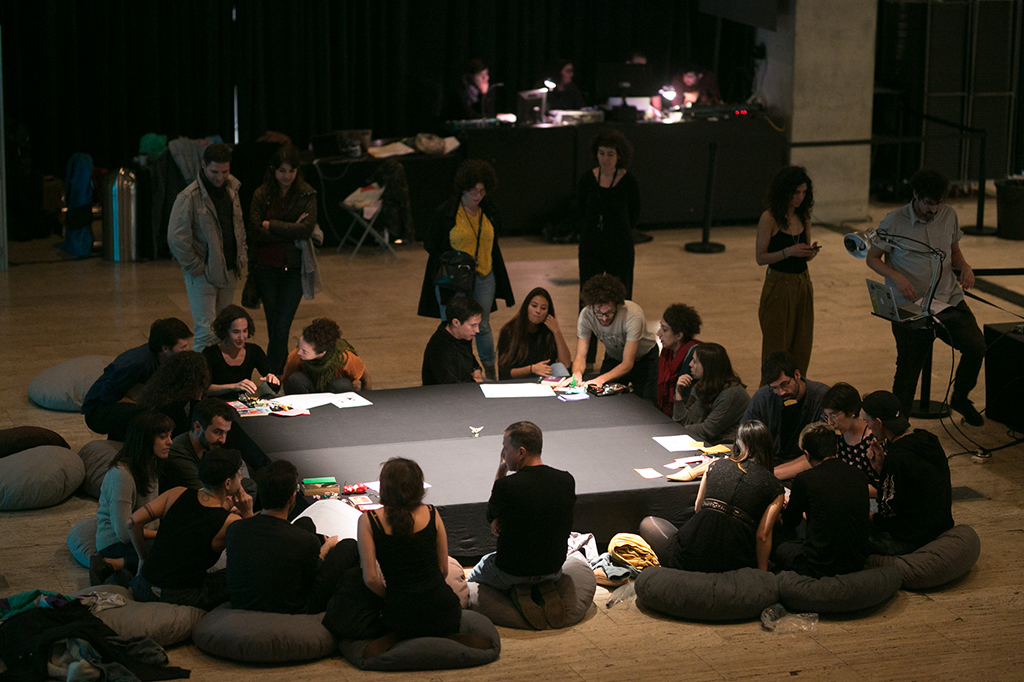
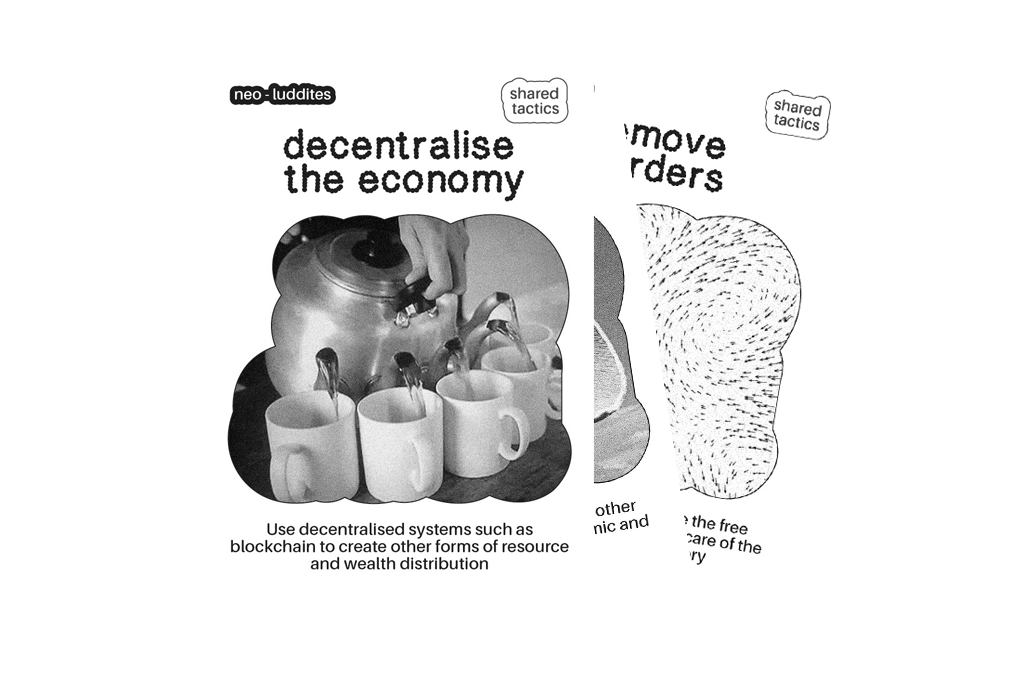
Combining strategic, transition and speculative design, participants use worksheets, a card deck and objects to build possible tactics to intervene into specific future horizons. These tactics can range from post-human infrastructures to interspecies policies, educational programmes, transhumanist hacks or the transformation of familiar bonds.
Based on these interactions emerges a series of scenarios that add to each other in every round. Through this process, apparently opposed imaginaries converge, collaborate and collide, creating wicked problems that need to be addressed by the participants to make their vision of the future prevail over the others.
Post-Growth Control Wars can range between 3 hours and several days, and it has been designed as a mourning ritual for the actual, unsustainable ways of life carried in the global north. It challenges modern optimism based on the myth that techno-scientific progress can do it all—and the futures it produces.
Las Erres
2021
Experiential Futures Installation
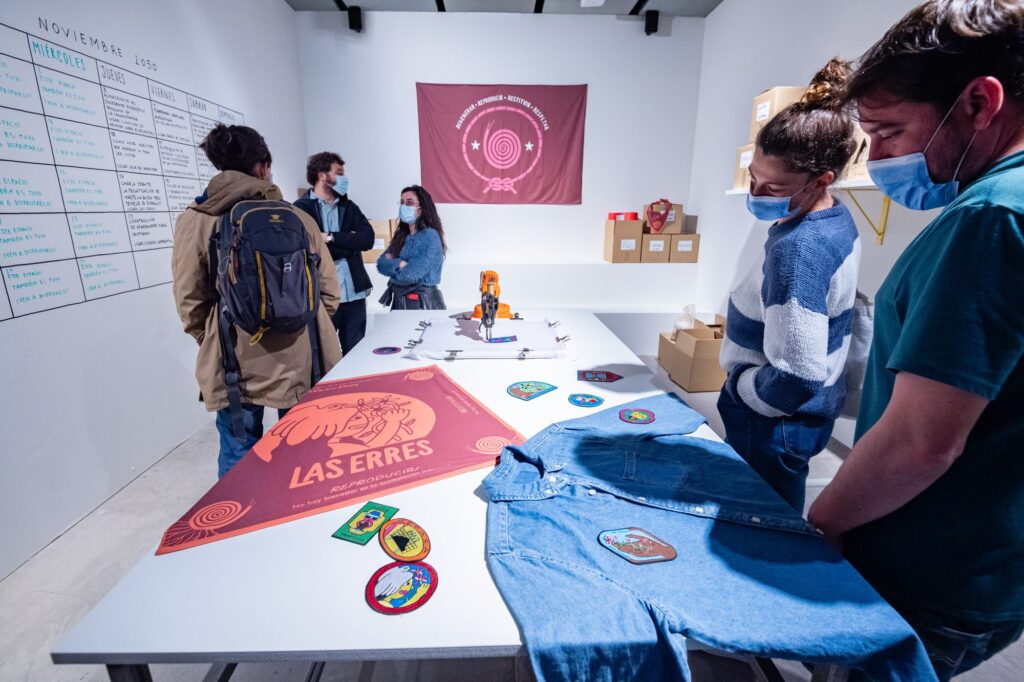
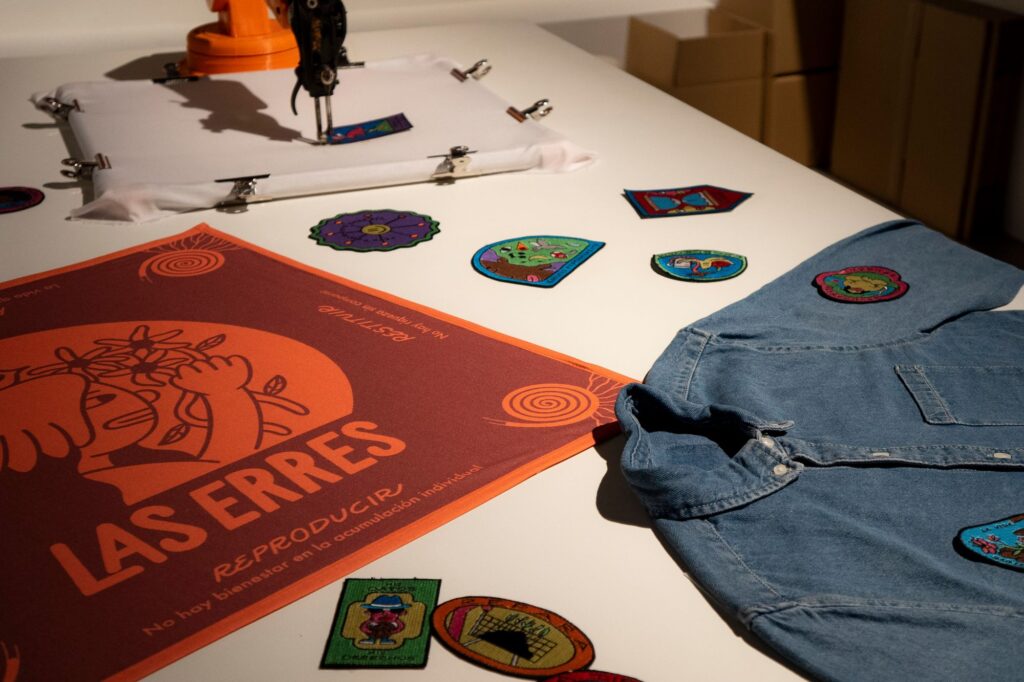
2050 – Capitalist growth has been definitively limited, the working day is reduced and cities are transformed into more livable and supportive environments. Little by little, cities stop being places of production and consumption to become spaces where life flourishes. This emerging social order, which we call degrowth, is not exempt from contradictions: people have more time but they are orphans of the consumer machine that produces desires. In these times of revolutionary changes and discomfort for some, “Las Erres” is a collective that cares about the ongoing socio-ecological transformations and the people who are going through them.
Las Erres is an organisation that has evolved from the scouts, is guided by ecological and planetary values and is open to anyone who wants to get involved. They try to make life worthwhile and are aware that the change in the production model must be accompanied by a change in what makes sense and is desirable. Las Erres is based in an old shopping centre that, in 2050, has been converted to house organisations and people at the service of the community and planetary well-being. In this flourishing context, the Erres work together to encourage the regeneration of urban and natural ecosystems and to heal human beings.
Las Erres is an installation commissioned for the exhibition “The Great Imagination: Stories of the Future”, curated by Jorge Camacho. It explores a future marked by limits and discipline and has been developed together with Giacomo D’Alisa, a member of Research & Degrowth International. Within this framework, it addresses the values, narratives and imaginaries of a scenario where society is moving towards degrowth and where individual, collective and planetary well-being become the new articulated common senses.
Sporae Vita
2021-2022
Installation
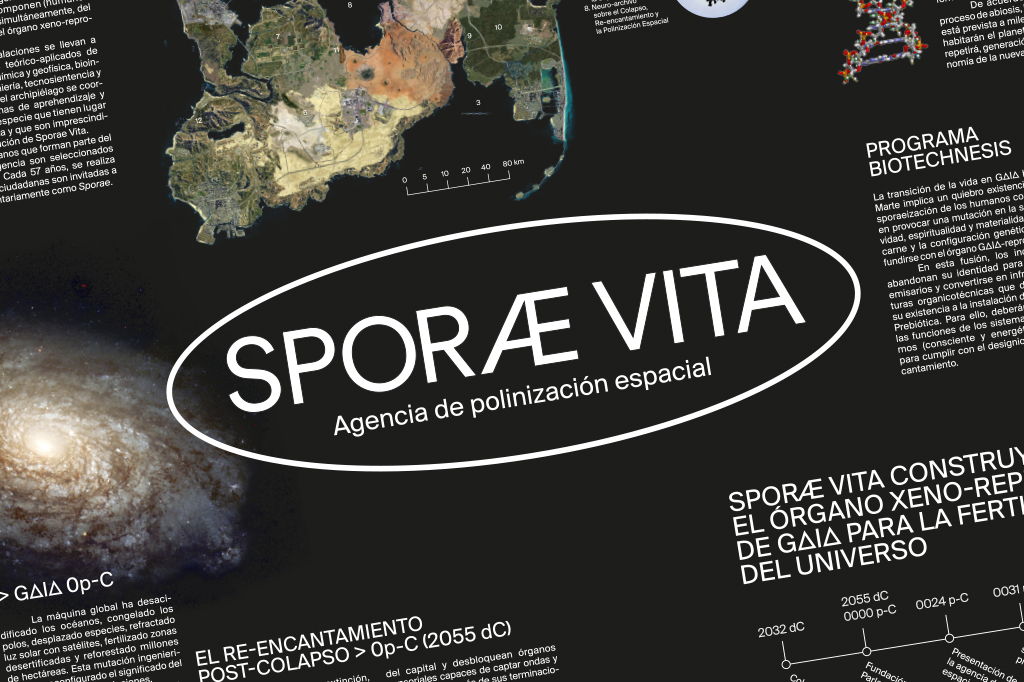
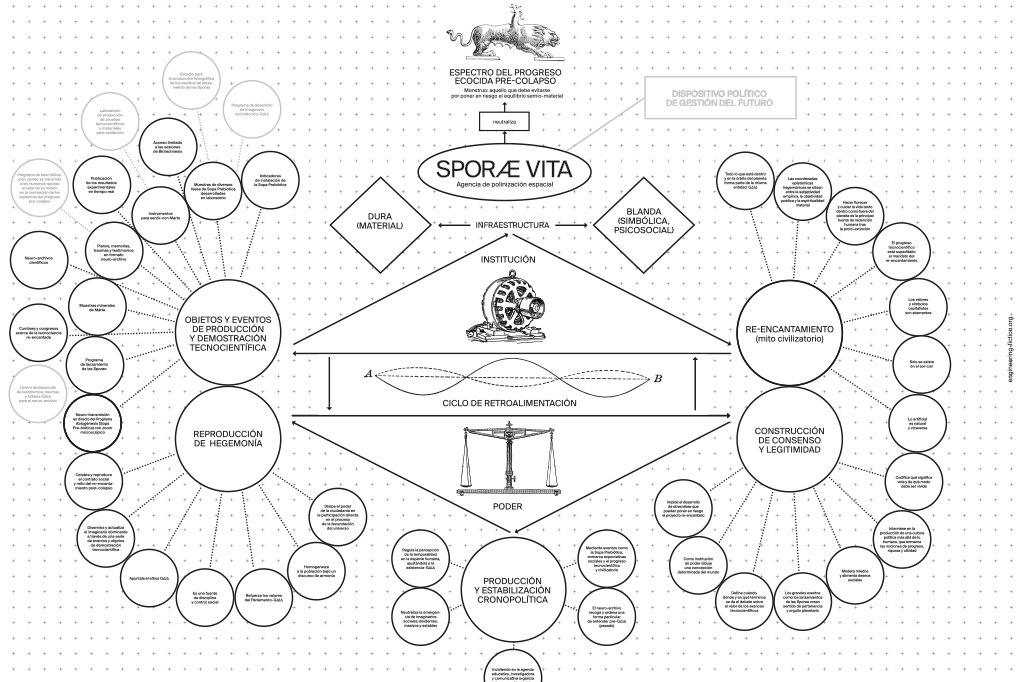
Sporae Vita is a theory-fiction research project that explores a techno-scientific institution that defines the meaning and mission of life and humanity while deploying a degrowth ethic and limiting myths of capitalist progress.
The project presents two posters. The first describes a post-collapse civilization that has brought the planet back to life through bio- and geoengineering and its attendant myths. Sporae Vita is the space agency of this world and its goal is to create the conditions for life to flourish on other planets. To do this, he sends genetically modified humans to inhabit Mars, while systematically communicating the agency’s technological and scientific achievements.
The second poster shows the results of a sociological investigation whose object of study is Sporae Vita. A diagram illustrates how the space agency, as the critical infrastructure of this new civilization, reproduces a series of degrowth and post-human myths through scientific programs and demonstrations. In doing so, Sporae Vita identifies certain forms of knowledge as desirable (and thus discriminates against others); it indirectly regulates the residual inertia of the techno-capitalist society that caused the original collapse; and finally organize a particular shared experience of time.
Sporae Vita is an installation commissioned to Andreu Belsunces Gonçalves (Holon member) for the exhibition Mars, the Red Mirror (CCCB, 2021).
Espai Puntal
2021-present
Gastronomic Project
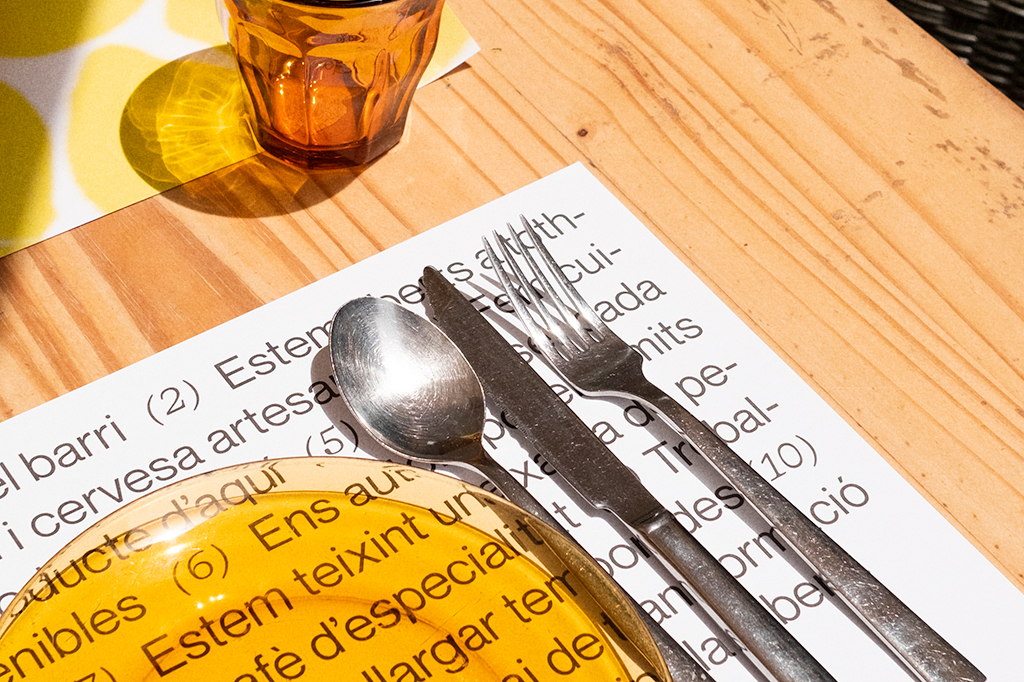
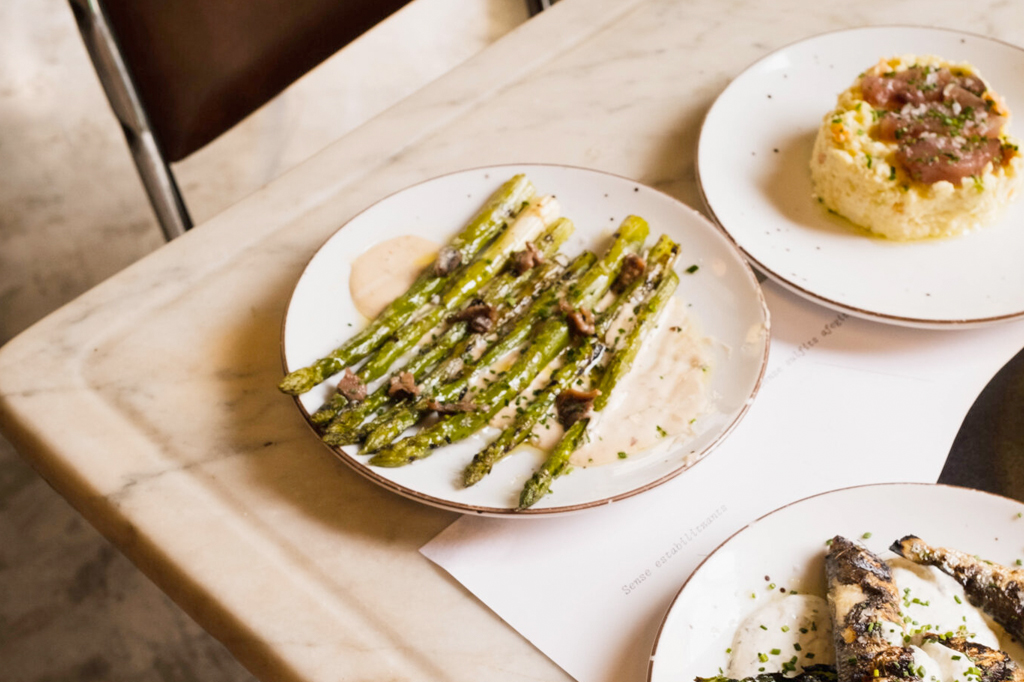
Espai Puntal (Bar, Restaurant, and Obrador) was established with the aim of being a lever for the transformation of the food system. It intervenes in daily life and critically questions related problems such as precariousness in the hospitality industry, the gentrification of Barcelona neighbourhoods, and the erosion of ties and relationships of mutual support.
The project responds to the reality that the majority of today’s agro-industrial production and distribution systems, which feed the world, are founded on the exploitation of land and natural resources. Additionally, they are characterised by unequal power relations between over-consuming countries in the global north and vulnerable producer countries in the global south.
The bulk of the current agro-industrial production and distribution systems that feed the world are based on the exploitation of land and natural resources, as well as on the relations of domination between over-consuming countries of the global north and precarious producing countries of the global south. The transition towards a more sovereign, fair, and sustainable food model must necessarily imply changes at different scales: from politics and the configuration of new social practices to decolonization processes. This transition also requires the creation of counter-institutions and alternative infrastructures capable of producing and distributing quality food at a fair and accessible price within planetary limits.
In this complex landscape, restaurants and other spaces for the collectivization of food represent interesting levers for transformation. On the one hand, they serve as configurators of large-scale economic relationships, acting as significant buyers. On the other hand, they stabilise more sustainable social eating practices.
Espai Puntal is a leverage point to explore transitions in these different levels through a well cared for cuisine and service
La Borda
2014-present
Cooperative Housing
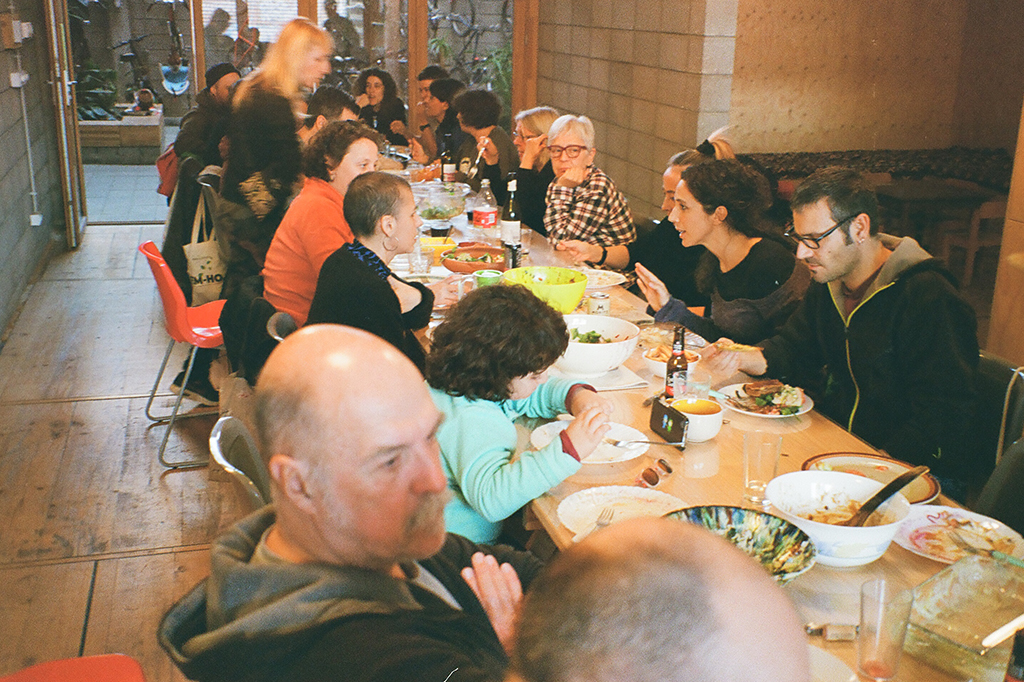
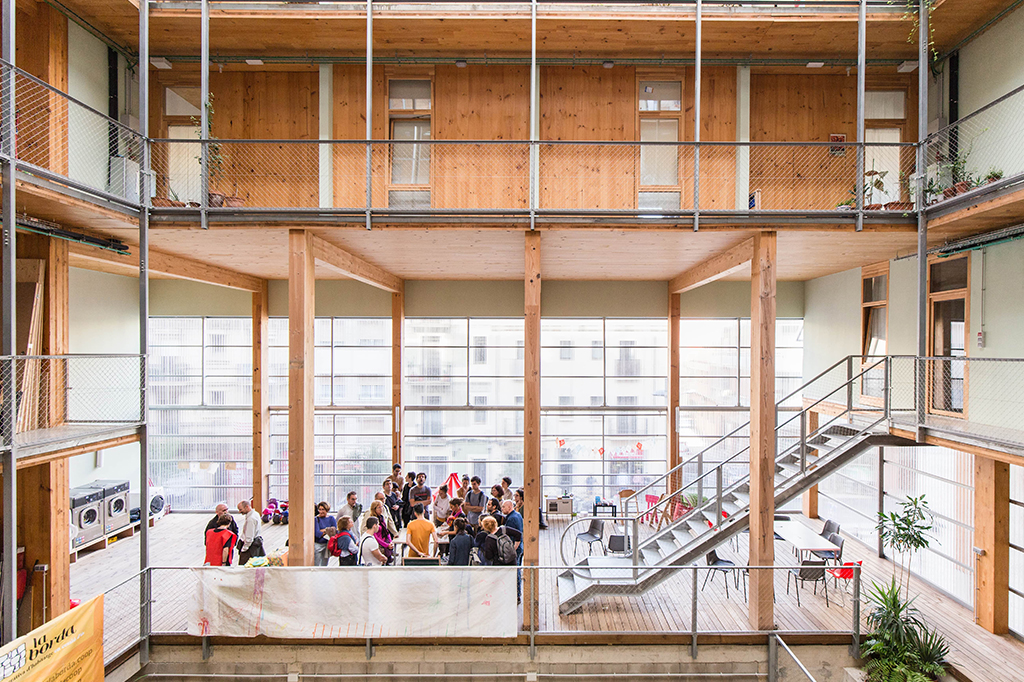
La Borda is a community led housing initiative evolving since 2012, established as a cooperative in 2014 and living since 2019. Situated in Can Batlló, one of Barcelona’s citizens success stories of how strong social fabric can positively transform neighborhoods, La Borda has a strong focus on social inclusion and environmental responsibility, the project is pioneering a new wave of initiatives weaving with Barcelona City Council limited social housing efforts.
La Borda responds to the fact that access to housing is one of the most pressing social issues of today’s cities, being housing speculation one of the drivers of 2008’s financial crisis in many countries. In particular to the city of Barcelona, around 20 housing evictions were performed every day when it peaked in 2013 to people unable to pay their mortgages, in 2020 evictions are still present and moved to affect renters. In the period of 2015 to 2018 the price of new built flats rose by 20%, rents by 30% and buying an existing flat costs people 40% more. Furthermore, when the majority of the world population lives in cities, innovation in the housing system holds a growing capacity to switch current environmental impacts resulting from existing housing configurations and its impact on lifestyles.
Dissident Matter
2023
Installation
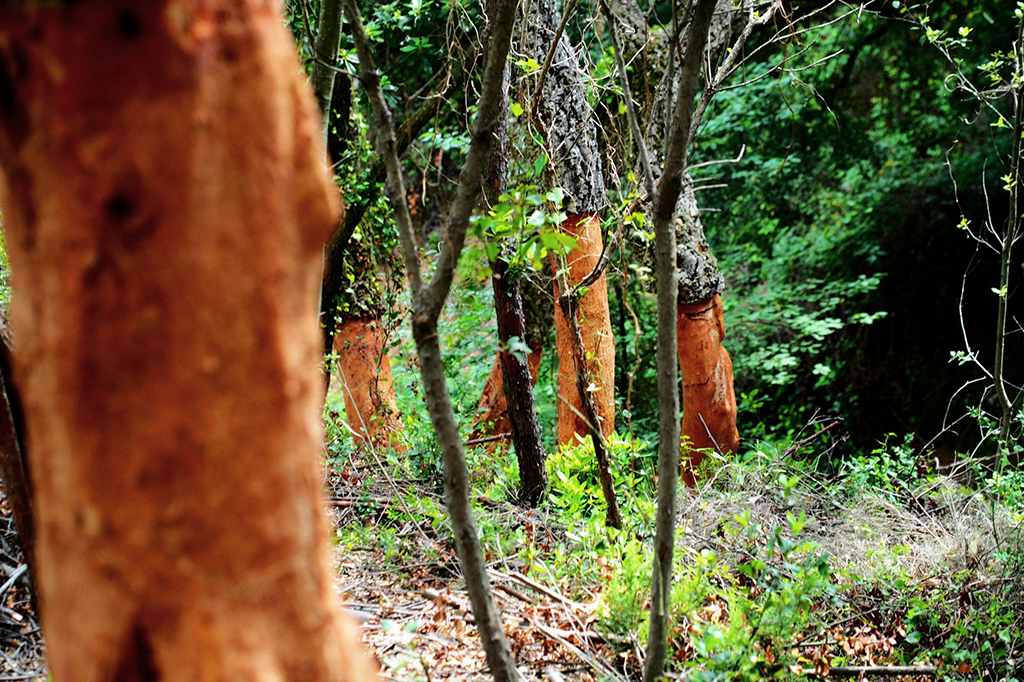
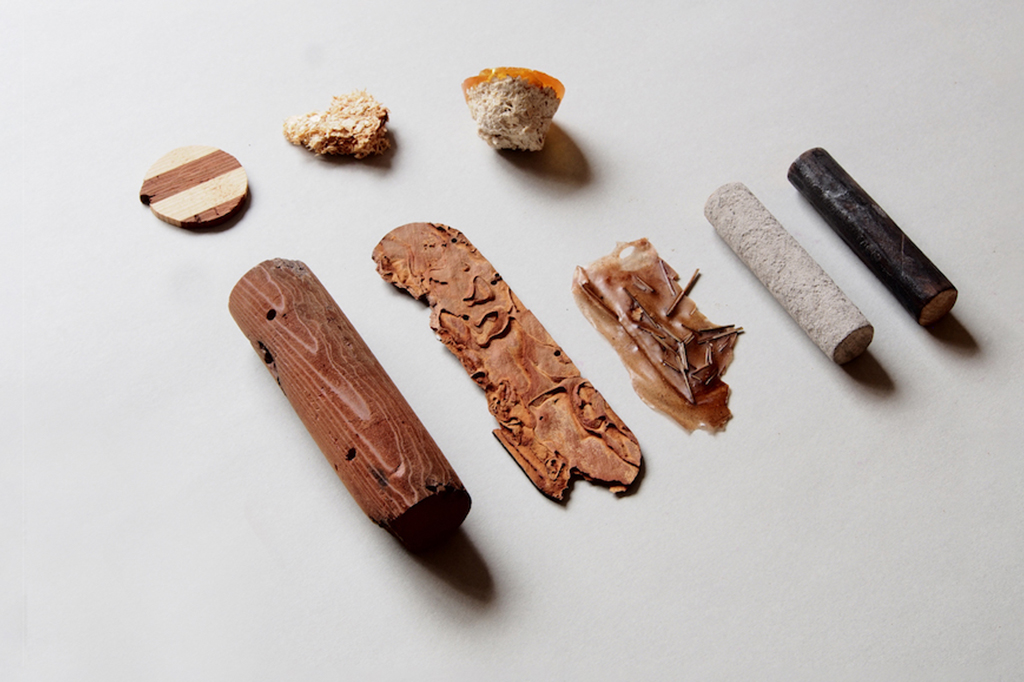
Catalonia, unlike other territories, is a region where forests are young, occupy a large area and are very vulnerable to fires, pests and hydric stress. These forests are no longer wild but rather a constructed environment resulting from a human-nature relationship. Therefore, there is a need to develop new types of relationships with trees and forests in order to create new economies and ecologies around them.
Thanks to thinkers like Bruno Latour, we are beginning to accept the idea that the nature that surrounds us is more a space produced by human beings than the “wild nature” typical of pre-agricultural periods. Since they are no longer self-regulating, the forests in Catalonia depend on their relationship with people.
Most of the wood from these forests is used for biomass. Singular Wood is an association that aims to reclaim the value of this wood beyond biomass. They take care of forests by removing fallen trees and chopping down others in order to favour slow-growing species. To support this project, Cris Noguer (member of Holon) bought a stone pine from Montnegre that cost me around €500. Through this, I also met another community linked to the pine tree forest in Vallirana, where they harvest the forest for resin.
The wood was full of holes from wood worms, and other forms of yellow, blue and pink fungi had invaded the wood. It was a non-homogeneous, non-normative piece of wood that went against the aesthetics of industrial wood and featured irregularities due to growth within the forest. After some research of the bark, resin, leaves and branches, Cris began to work with the trunk.
The whole process made her question the idea of quality and led her to the need to create new definitions. These new definitions require an ancestral and eco-feminist perspective in which human/non-human relationships are more fluid and allow for new nuances and approaches.
The research ended with the construction of two tables and four benches. The irregularity of the wood was celebrated, with its stains, main features and worm holes visible. This new idea of quality led Cris to think about one’s relationship with a territory and how we become emotionally connected to objects, whether made from natural or synthetic materials, and how we can create new, durable relationships with them.



